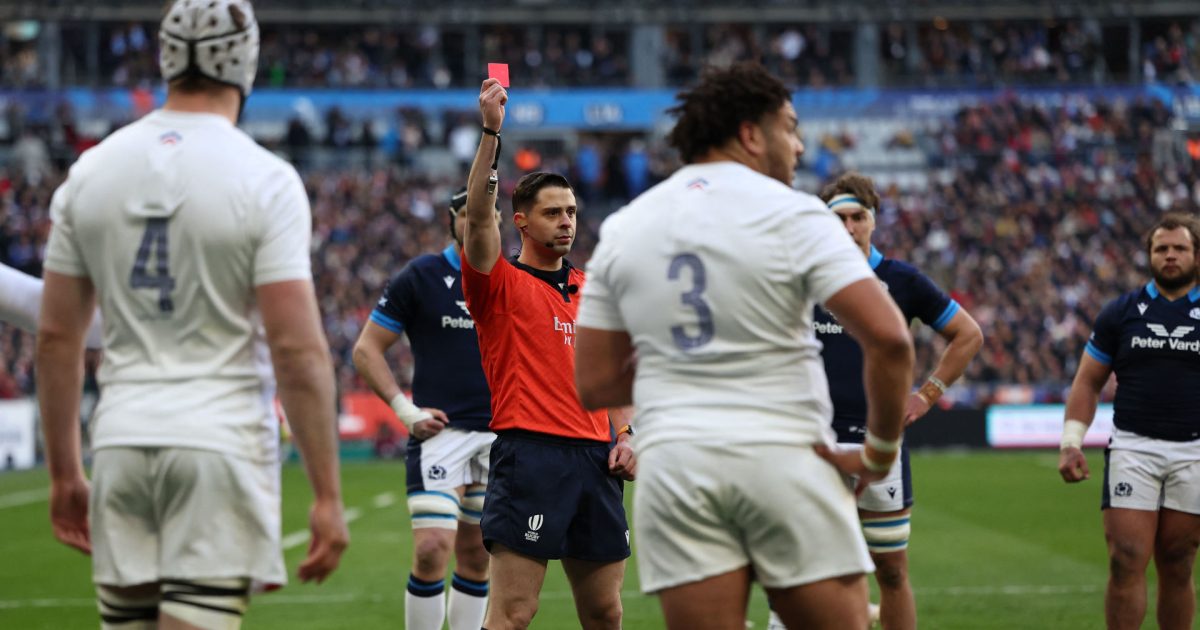As Six Nations red cards fly one side has kept a clean sheet for 23 years

It’s hardly a secret that there has seen a significant increase in red cards in recent years in rugby union – and the Guinness Six Nations has been no exception.
Not so long ago a rarity in the sport, sendings off have become the inevitable cost of a clamp down on head contacts in rugby union. As players continue to adjust to stricter Laws and a changing emphasis on safety, it’s been a slow and at times painful process.
We take a look at the red cards in the Six Nations over the course of the last decade, thanks to data from Opta.
According to stats from the decade spanning 2014 to 2023, there have been a total of 15 red cards in the tournament. That’s a rate of one red card every 10 games.
However, 12 of those came in the last four tournaments alone, which is a rate of one red card in every five games.
In 2014, there were three red cards, with one each for Italy, Scotland, and France. But that was an anomaly year, with the 2015 to 2019 tournaments not seeing a single red card across 75 games.
Yet in 2020, things started to change, with two reds card handed out; one a piece to England and France.
2021 was an annus horribilis for players being sent off – with five red cards across the tournament, a rate of one every three games.
Data suggests that the increase in red cards is not limited to a specific team. France and Scotland have the highest number of red cards, with four each, over the last decade.
England, Ireland and Italy have also had players sent off. This trend indicates that the issue is widespread, and all teams must take measures to improve player discipline and safety.
Interestingly, Wales haven’t received a single red in the last decade, whereas every single other nation has gotten at least one. In fact, Wales haven’t received a single red since Italy joined the competition in 2000.
The data also shows that generally speaking, players aren’t more prone to receiving red cards than others at least in the narrow sweep of the Six Nations.
France tighthead Mohamed Haouas might be the exception. He has received two red cards, while Manu Tuilagi, Charlie Ewels, Freddie Steward, Peter O’Mahony, Bundee Aki, Rabah Slimani, Paul Willemse, Grant Gilchrist, Stuart Hogg, Finn Russell, Zander Fagerson, Michele Rizzo, and Hame Faiva have all received one.

































